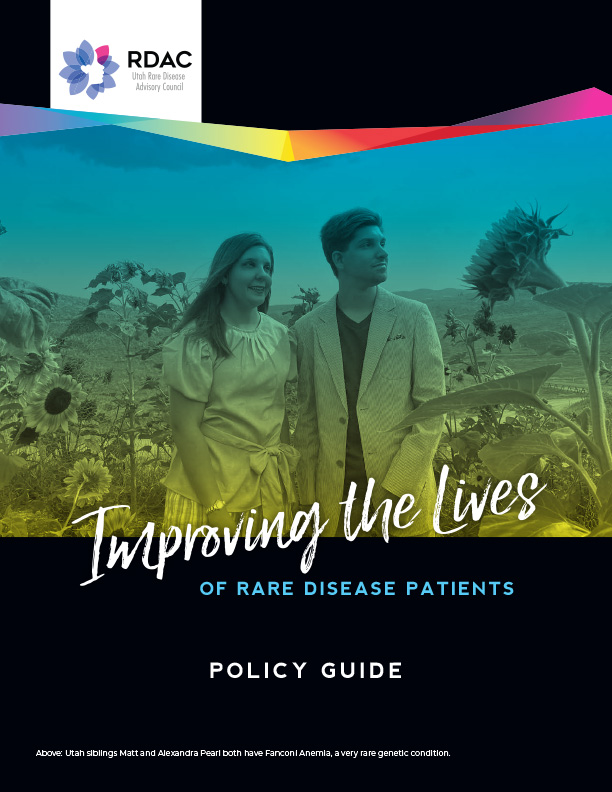RDAC Position
The RDAC supports access to medically necessary nutrition for all individuals diagnosed with phenylketonuria (PKU) and other genetic metabolic disorders diagnosed on the basis of newborn screening, as recommended by physicians, the National Institutes of Health, Utah Department of Health & Human Services, the American College of Medical Genetic and Genomics and Genetic Metabolic Dietitians International. In addition, the RDAC supports the requirement that every baby born in Utah hospitals should receive a routine newborn screening test around 24 hours after birth. Every individual diagnosed with PKU, or other Inborn Errors of Metabolism requiring medical nutrition should be provided the appropriate coverage without unnecessary denials and appeals, regardless of insurance status.
Issue
Phenylketonuria (PKU) is a rare inherited inborn error of metabolism in which the amino acid phenylalanine is not broken down in the body properly, resulting in harmful build up of phenylalanine in the blood. In the United States, PKU occurs in about 1 in 10,000-15,000 newborns. Untreated PKU results in severe neurological complications and irreversible brain damage, including permanent intellectual disability, seizures, delayed development, behavioral problems, and other psychiatric disorders. Most cases are detected shortly after birth by newborn screening, and treatment is started promptly. Treatment consists of a life-long, carefully controlled, phenylananine-restricted diet beginning during the first days or weeks of life. Newer FDA-approved medications may allow a few people with PKU to follow a diet that has a higher amount or unrestricted amount of protein.
Recognition of the critical importance of newborn screening is imperative. Newborn screening saves lives. Early diagnosis by newborn screening, along with medical treatment of PKU, and other inborn errors of metabolism, is critical for maintaining the health of infants born with these conditions. When an infant is diagnosed with PKU or another inborn error of metabolism, it is essential to begin treatment immediately with a protocol that includes medically necessary food and formula to maintain good health. The need for treatment is lifelong, and with strict adherence to treatment, patients may be able to lead normal lives.
The standard treatment for PKU is a low protein diet, severely restricting the offending amino acid, phenylalanine (phe). This diet requires collaboration with a medical team to regulate the person’s protein intake and determine specific daily intake of medical foods for optimal nutrition and development. This is accomplished by consuming medical foods and formula modified to be low in protein for the provision of required calories.
The PKU diet is costly and unaffordable for most people. Utah has mandated insurance coverage for medical nutrition for the treatment of inborn metabolic errors (Utah Code Annotated Section 31A-22-623), yet 72% of insured Utah residents are on federally regulated plans that pre-empt state legislation on medical nutrition. Many Utah families do not have coverage for low protein formula or foods and thus cannot adequately follow treatment protocol or recommendations due to access issues.
In 2021, the Utah legislature funded the PKU Formula Program for children through an ongoing appropriation to the Department of Health. This restored a former program to cover formula for all Utah children with PKU through age 18. From 2009-2021, the program was restricted to children with PKU under the age of 6 due to budget restraints. However, the need for medical formula and medical foods is life-long and continues through adulthood. All Utahns who require medical nutrition for the treatment of inborn metabolic errors should have access to lifesaving medical nutrition regardless of insurance coverage.
Citation
https://medlineplus.gov/genetics/condition/phenylketonuria/
https://rarediseases.org/rare-diseases/phenylketonuria/?filter=ovr-ds-resources
https://www.mayoclinic.org/diseases-conditions/phenylketonuria/symptoms-causes/syc0376302#:~:text=Phenylketonuria%20(fen%2Dul%2Dkey,needed%20to%20break%20down%20phenylalanine
